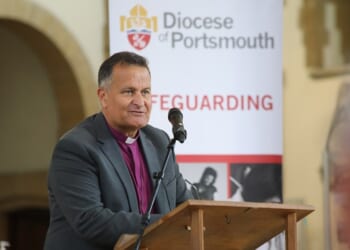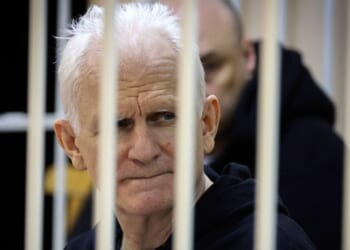POSSESSION of a safeguarding certificate should be made a prerequisite for ministering in the Church of England, two priests have proposed in a report, which they hope will put debates about church safeguarding on a “practical footing”.
The priests, the Revd Graham Lewis, a retired self-supporting minister in the diocese of Chichester, and the Vicar of St Margaret’s, Rainham, in the diocese of Rochester, the Revd Nathan Ward, have produced the report Faithful Responsibility.
Mr Lewis was previously a specialist in streamlining business processes, and Mr Ward worked in children’s services and as a prison governor. Last year, Mr Ward proposed a motion of “no confidence” in the Archbishops’ Council’s oversight of safeguarding, which was passed by the Rochester diocesan synod (News, 10 December 2024).
On Tuesday, Mr Ward said that having an independently issued “certificate of ministry” might have helped to prevent the abuse of the late John Smyth, as well as guard against the “weaponisation” of safeguarding structures.
Under their plan, anyone working in a ministerial position, including licensed lay ministers, would require a certificate. Suspension or removal of the certificate would bar them from ministry work, regardless of their employment status, the report says.
This mechanism would mean that priests who held office under freehold and lay volunteers could be more easily removed from their posts by an independent body, Mr Ward said; and Smyth’s status as a Reader would have meant that his activities at the Iwerne Camps would have fallen under the scope of such a certificate, even though the camps were not being organised by the C of E.
Having an independent body to consider whether to grant, remove, or suspend certificates would mean that bishops were taken out of the decision-making process. This would “allow bishops to be bishops”, Mr Lewis said, and help to simplify and professionalise church safeguarding structures.
“Church safeguarding is a zillion times better than it was when I was ordained nearly 30 years ago,” Mr Lewis said, but part of the ongoing problem is the “perception in the community that it’s rubbish”.
The Makin review showed that the safeguarding team in the diocese of Ely had “made strenuous efforts to get the police involved”, he said (News, 29 November 2024). The model that he and Mr Ward were proposing would help in such cases, he said, because it would provide more clarity over “what is, and what is not” the Church’s responsibility.
The report has been shared with senior staff at Church House, Westminster, and with the membership of the General Synod.
The production of the report was not, Mr Ward said, a campaign, but an attempt to move the conversation from the “big conceptual ideas” about independence, to the practicalities of “high-quality safeguarding”.
“What we’ve written here is hopefully a springboard for people to have conversations around detail,” he said. He believed that the model that the report outlined could be implemented within 12 months.













